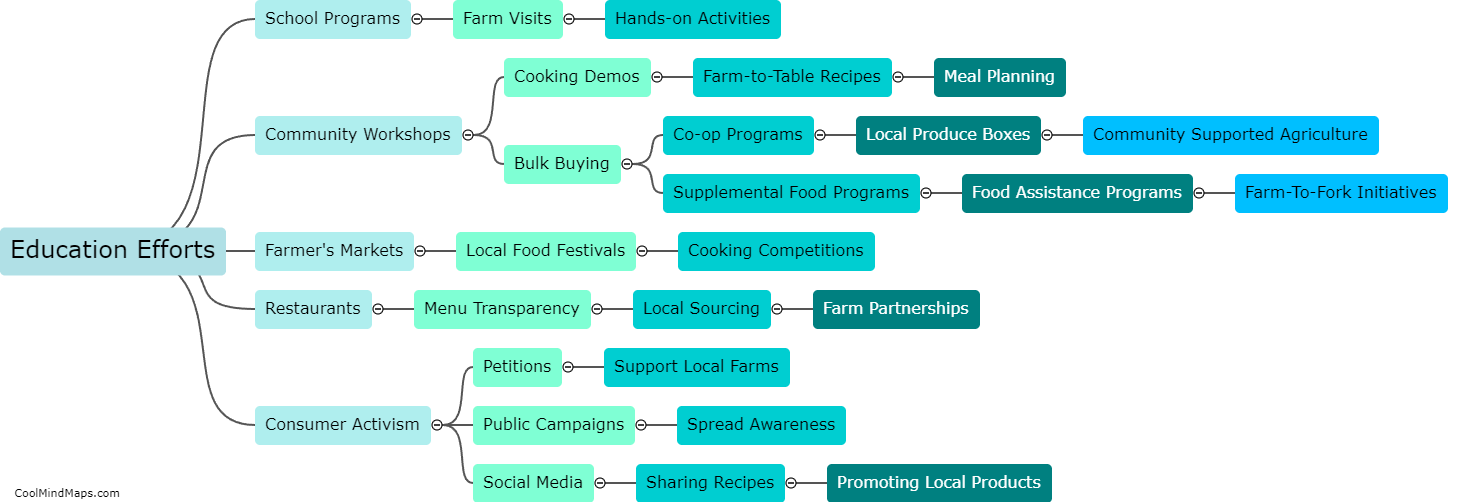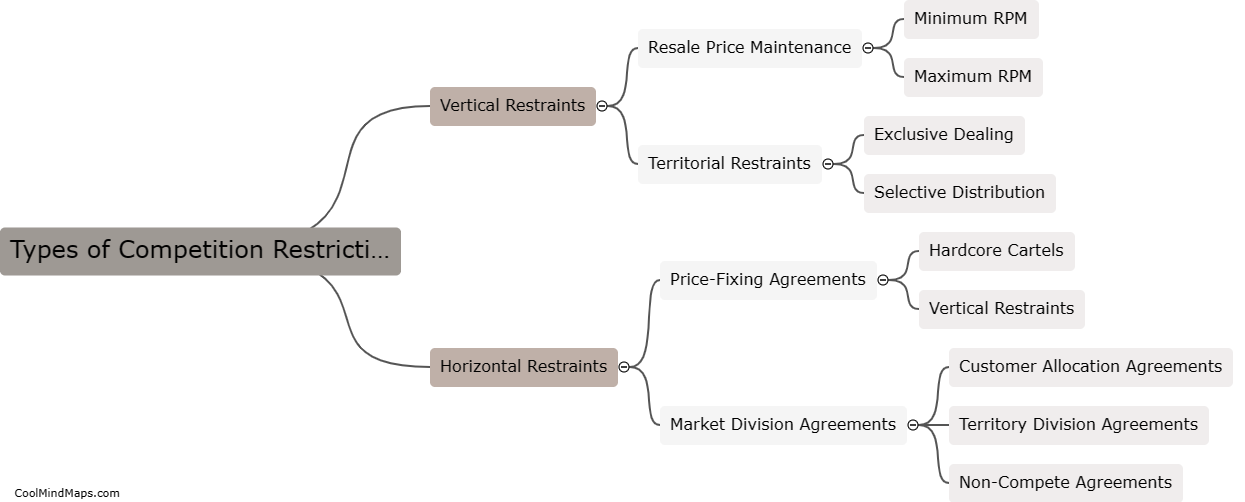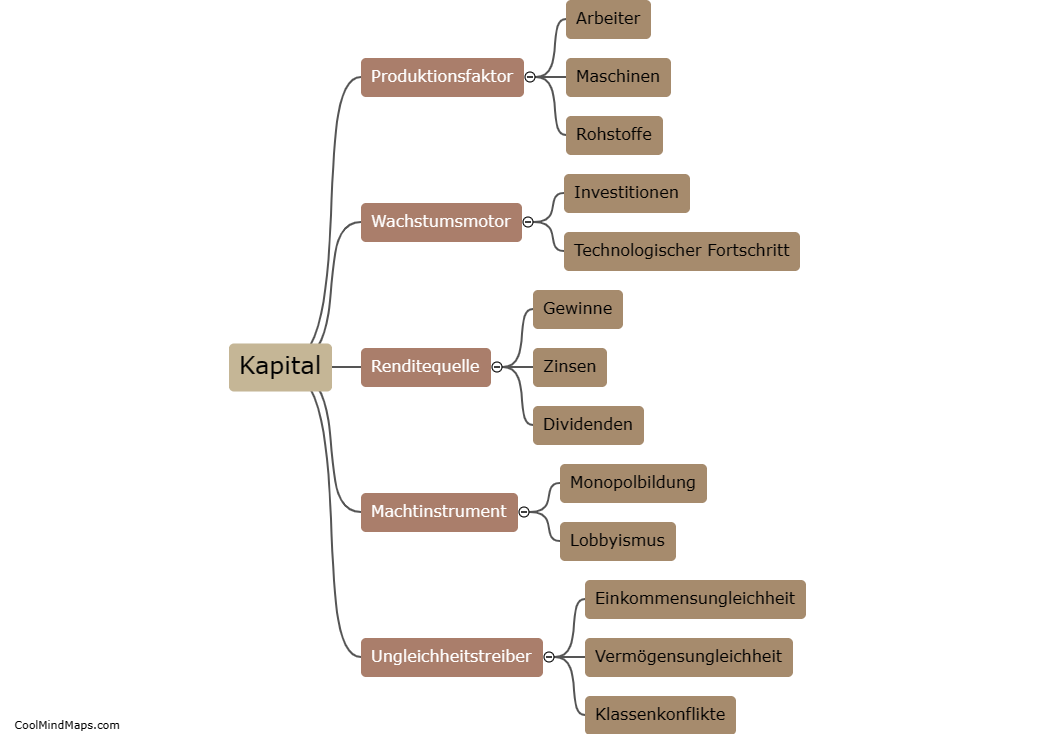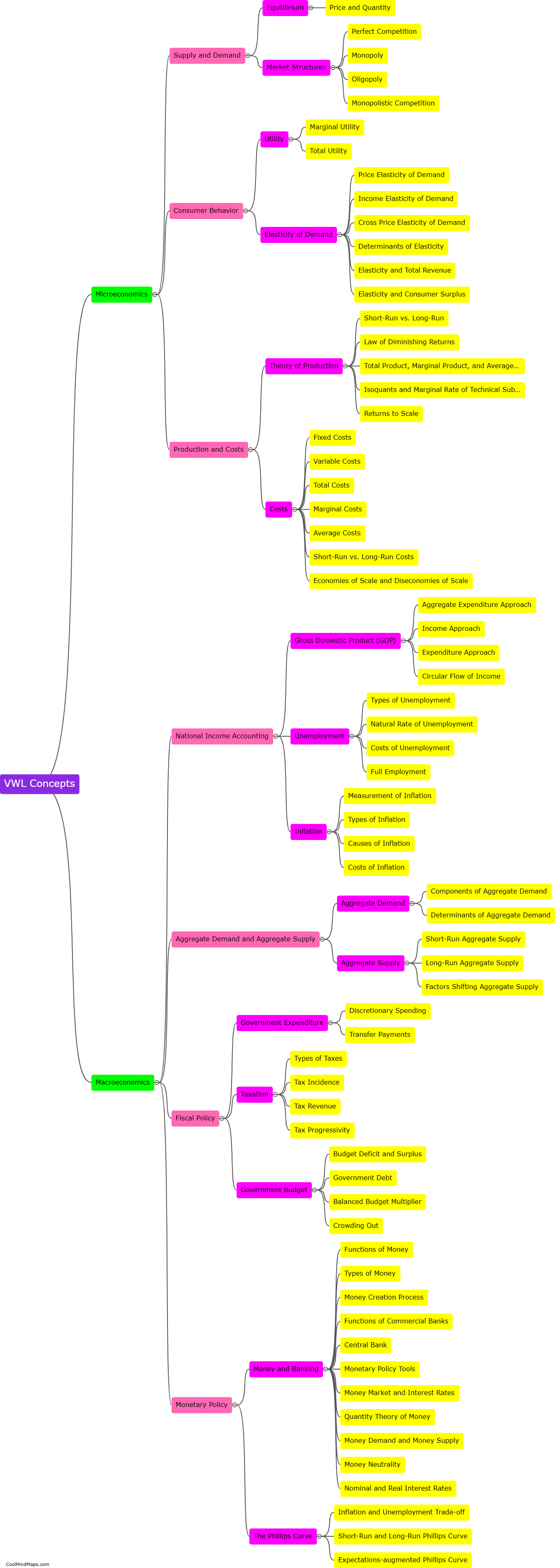What are the main functions of soil in production?
Soil plays a crucial role in agricultural production by performing various functions that are essential for plant growth and development. Firstly, soil acts as a medium for plant root anchorage, providing stability and support to the aboveground plant structures. It also acts as a reservoir for water, holding moisture for plant use during periods of limited rainfall. Additionally, soil is a storehouse of essential nutrients and minerals that are absorbed by plants through their roots. It facilitates the exchange of gases, allowing oxygen to reach the roots and carbon dioxide to escape. Furthermore, soil acts as a habitat for beneficial microorganisms that aid in nutrient cycling and promote soil health. Overall, the main functions of soil in production include providing physical support, water storage, nutrient availability, gas exchange, and fostering a favorable environment for soil organisms.

This mind map was published on 22 September 2023 and has been viewed 94 times.











